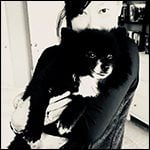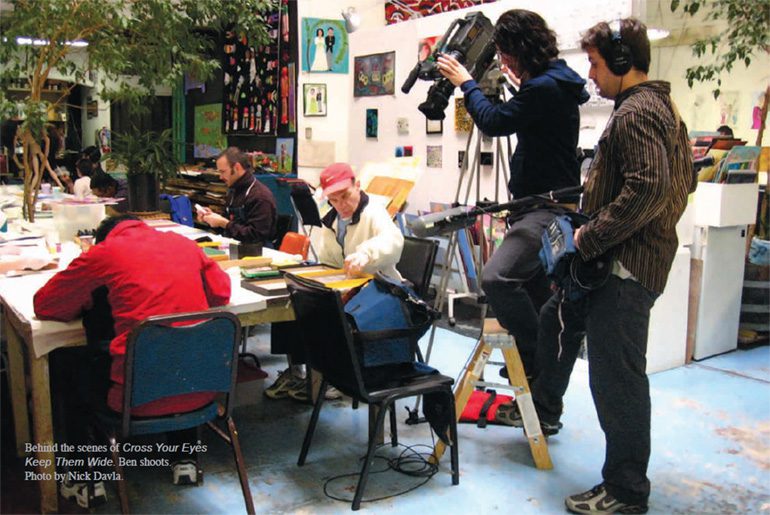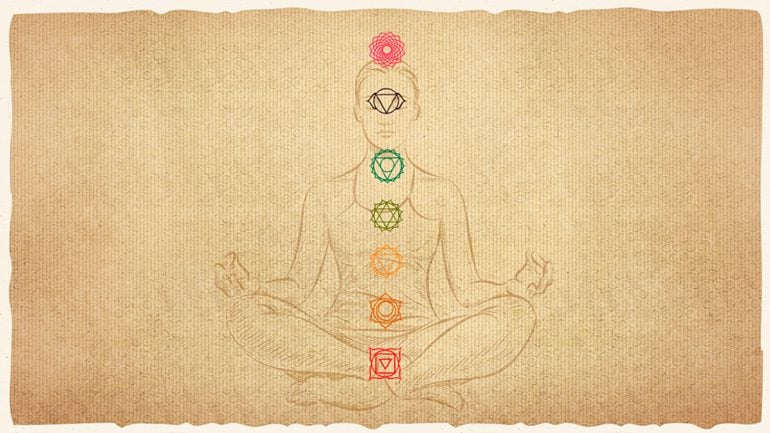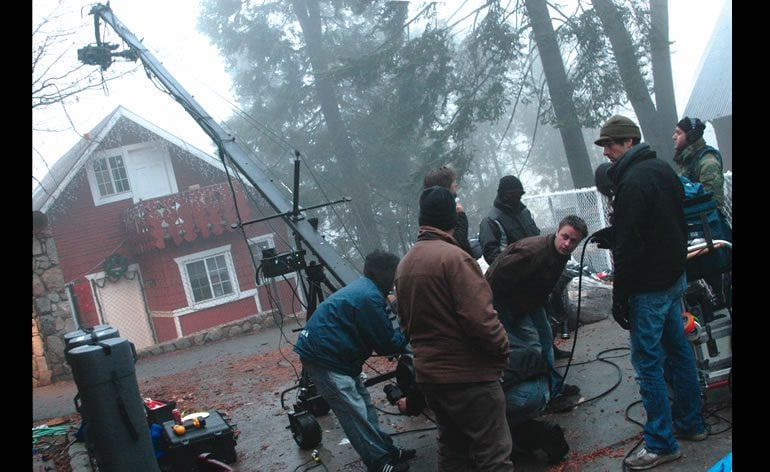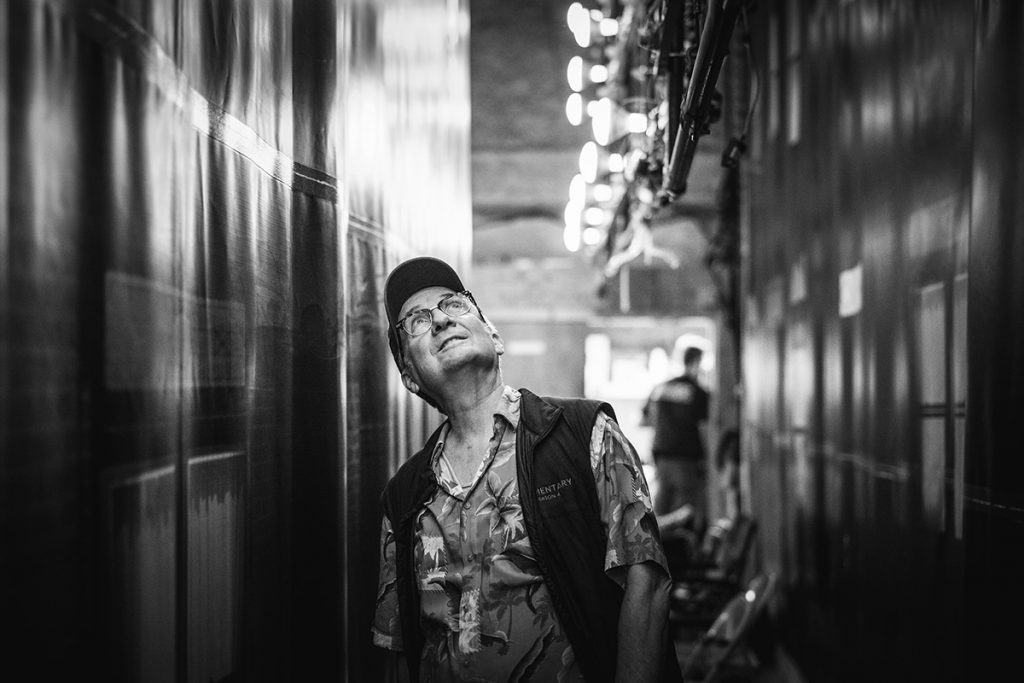#FlashbackFriday #FBF Do you remember our Conversation with Ben Wu?
Ben Wu, whose short student films have screened at various film festivals and earned honors, including a Silver Medal in the documentary category at the Student Academy Awards (2005), Best Documentary at the Angelus Awards Student Film Festival (2005), and Second Place, Best Student Documentary Short at the Palm Springs International Festival for Short Films (2005), recently completed Cross Your Eyes Keep Them Wide for his Masters thesis project at Stanford University. The documentary screened at the 2006 Telluride Film Festival.
What is Cross Your Eyes Keep Them Wide about?
Ben Wu: Cross Your Eyes is a short documentary about the artists that work at a non-profit art center in San Francisco for people with developmental disabilities.
What inspired the beginnings of this project?
Ben Wu: Throughout my life I never really had much contact or interaction with anyone with developmental disabilities. And I think sometimes relatively naturally there is that fear of the unknown. So there was this slight uncomfortableness for me when I did encounter people with retardation, or autism. I didn’t know how to act, how to approach them. But that always bothered me.
So when a friend mentioned she had been to this amazing place where people with developmental disabilities created amazing artwork, I was fascinated, and maybe a bit intimidated. It was a place I felt like I had to check out, not just to see this artwork I had heard so much about, but also to really get a chance to meet people and challenge my own preconceived notions of individuals with developmental disabilities.
What is the meaning behind the title of the film?
Ben Wu: The title of the film came about towards the end of editing. I was perceptions so many, me at one time included, have about the developmentally disabled. At the same time, I definitely wanted to promote art based programs, like the program at the center, in creating a nurturing and stimulating place for the developmentally disabled to grow, both as artists and as people.
Was Cross Your Eyes shot on digital video?
Ben Wu: This film was shot in MiniDV with the school’s Sony DSR 500, which is a great camera. I was toying with the idea of buying a Panasonic DVX 100, because I really like the cinematic look of 24p, but I decided that purchase would have to wait. And I also was excited to shoot with the 500 because it’s native 16:9, and I hadn’t really shot with a native 16:9 camera, but always loved the wider aspect ratio. I think that aesthetic goes a long way, just in that it seems more filmic, less like TV.
It ended up looking great, but I’m also looking forward to shooting my next project in 24p. We’ll see how it goes, I love the look, but am a bit nervous of the low light capabilities of the DVX. One of the best things about the Sony cameras I’ve used, like the 500 and especially my old warhorse PD 150, I could shoot anywhere and still get a decent image lightwise. The little amount of run and gun stuff I’ve shot with the DVX seems like it needs a lot more light.
What cameras did you use and how many?
Ben Wu: I shot with the Sony DSR 500 and 570, which are essentially the same camera. I also shot a little bit with my PD150, but found it didn’t match so well because of the 16:9 issues (the 500/570 having a native 16:9 chip, and the PD150 doing the fake 16:9 thing).
How did shooting on DV help to tell your story? Could you talk about the look you wanted to create, and any advantages shooting on DV?
Ben Wu: I think Cross Your Eyes is sort of a hybrid verite film, in that there aren’t any talking heads, and the interviews happen relatively organically, in the flow of the artists’ daily routines. There are a lot of observational shooting, and DV for me was the only way to accomplish that. To capture the ebb and flow of the studio, and having to keep the camera rolling – film, though beautiful, would have been prohibitively expensive for me to do that.
I felt like I really had to keep the camera rolling in order to capture those magical moments within the studio; there was no way to know when something amazing was going to happen. … Also, there’s that immediacy to video. If we shot something we thought was interesting, we could look at it that night, or even right then and there, and figure out a new angle to follow up on, or a new direction to go. But with film, sending it to the lab, getting the rushes back, then projecting them, I don’t know, I feel like some of the momentum is lost. It’s nice to rewind and think, ok, cool, we got something great, let’s dig deeper into this.
For the look, I wanted it to have nice color balance, which was tough because of the mixed lighting in the studio. There were huge skylights letting in a ton of daylight, and big overhead fluorescent lights as well. So my crew and I were always really vigilant about checking and readjusting white balance in the space, as well as using the field monitor as often as possible to check ourselves.
Did any challenges come up, and how did you overcome any difficulties?
Ben Wu: There were pockets of the studio that were much dimmer than others, but because of the great low light capability of the 500, we were still able to get a good exposure. But one thing I make it a point to stay away from is bumping up the gain. Unless there is absolutely no other way to bring up the exposure, I don’t touch it. I just find it really compromises the quality of the shot; all that video noise just looks really bad to me. I’d rather try and lower the shutter speed if possible. But then you have to be careful with motion blur. Luckily lighting was never really an issue on this film.
Could you talk a little more about the lighting?
Ben Wu: This was shot almost completely with available natural light. But film can be pretty forgiving in terms of exposure, so I’m not sure if I really would have needed more light if I shot film.
The one segment I did light was a sequence of the artists’ finished artwork on a white background. I used a small room they had at the studio they used for photography, and set up a couple small lights. It took some tweaking, especially because I wanted good exposure on the artwork, but the background would tend to blow out and be too bright. I had to fix it in post, work on the color correction a bit. In hindsight I would have liked more time with that, and shaped the light a bit better to have it really pop on the art and fall off of the background, but I think it turned out fine given the circumstances.
Could you share a tip or technique, in regards to shooting on DV, and in relation to your short documentary, Cross Your Eyes?
Ben Wu:Using a field monitor was key. I wanted the film to almost seem that it was the course of a single day, not specifically, but just to have that feel of the day starting and the artists arriving, then capturing what happens over the course of the day, and then the day ends. But since I shot over the course of several weeks, the lighting would sometimes be totally different from day to day. So in attempting to match the footage, it was really helpful to have the monitor there, playback footage from the previous day, and do our best to set it up as close as possible.
The other is using a tripod. To me this was one of the most important aspects of the style of the film. A quick cutting, hand held style definitely has its place, but would have seemed really out of place I think in this film. I really wanted the scenes to unfold at their own pace. I wanted to have a “patient” camera, without a lot of quick moves, pans and tilts. I was trying to go in the opposite direction of a MTV quick cuts and camera moves style, and more in line with narrative films like Ozu, or Jarmusch, with long takes, letting the action unfold within a single composition. I really tried to stay away from zooming in and out within the shot, and even in editing, I didn’t use any dissolves. I wanted it to be restrained in bells and whistles that would draw attention to the style of the filmmaking, rather than the content. And shooting on sticks, keeping the camera steady and subtle, was integral to achieving that.
How long did it take to shoot, Cross Your Eyes?
Ben Wu:Over the course of about 6 weeks, I came in on average probably 3 days a week. I shot about 25 hours all together. It was a high ratio, but that was the kind of film it was. I’d shot a couple tapes where there’s not much happening, then all of a sudden on the fourth tape things would pick up, and amazing interactions between the artists would occur, or an artist that didn’t want to talk over the past couple weeks would look up and say something stunning or hilarious. The same went for spreading it out over a month and a half. I’d meet an artist, and maybe initially they didn’t want to be involved. But over the course of the weeks, they’d see how I was working, and be comfortable with what I was doing, and then in week 5 agree to be filmed. It was really nice to work in that kind of extended framework.
How was the film edited, and how long did it take to edit?
Ben Wu: The film took about 3 months to edit. In our program, during the 2nd and final year, we spend the fall quarter of the year developing ideas and doing pre-production, the winter quarter shooting, and the spring quarter editing. It was done using Final Cut Pro, and I split my time editing at home on my G5, and editing in my editing suite at school. It was nice to go back and forth. I found a change of scenery every now and then which really helped. It was great using external drives too, because I could take my laptop and go out and show rough cuts to friends and other filmmakers.
Did any challenges come up during editing?
Ben Wu: Conceptually huge changes were made along the way. It’s a bit tricky making a film that doesn’t really have a natural climax. A lot of the time you’ll see successful documentaries that have these built in structures, often in some sort of contest…sports docs leading up to the big game, spelling bees, dance performances. It can be a lot more difficult trying to keep something moving a long and interesting when you don’t have that. So I spent much of my time rearranging sequences and trying to fit everything together that would make sense and never bog down. What helped for me was getting people whose opinions I respect to take a look, and have small screening sessions with classmates. That was incredibly helpful in coming up with creative and thoughtful solutions to issues of structure.
What was your movie’s budget? How did you come up with funding for your project?
Ben Wu:The budget was roughly $4500. It was great doing something local – when a few of my classmates decided to do their thesis projects out of state, it really affected their budgets. The budget covered meals, gas, and a lot of post-production, i.e., musical score, sound mixing, color correction, things like that. I got a small grant, but other than that it was primarily out of pocket. Ouch.
What was the hardest part about making this documentary?
Ben Wu:For me, the most difficult aspect of this film was making sure I was able to establish a good relationship with my subjects. That was one of the real benefits of doing a project that took place so close to home. I was able to spend a lot of time with my subjects, getting to know who they were, how they worked, what they’re interested in. We became friends, and we felt very comfortable with each other. I spent about a month during pre-production, just coming in and hanging out, before ever bringing in a camera. So by the time I brought in the camera, my subjects knew what I was trying to do, and didn’t feel like I had just rolled in that day and was maybe being a bit exploitive in my intentions. The artists there are in a vulnerable position, they know they’re different but are often made to think they’re not equal, that they’re not “normal.” So for them to know that I’m not out to exploit them, but rather show others all these amazing qualities that make them exceptional individuals, that’s really important. It takes time, but this is really the way I like to work. I seek out a real connection with my subjects on every film I’ve done.
You’ve directed and shot several short documentaries, including Cross Your Eyes, and now you’re working on another documentary. What draws you to making documentaries, as opposed to other kinds of movies, such as fictional or narrative films?
Ben Wu: I find that truth really is stranger than fiction, but it can also be more terrifying, funnier, or more inspiring than anything that can be found in fiction. I love to escape in a good book or Hollywood film as much as anybody, but there’s a resonance that I feel when I watch a good doc that can’t be captured in fiction. It involves something that actually exists, that viewers can reflect on, and in being exposed to a new way of looking at a subject; maybe their ideas and perceptions about the world they live in might be expanded.
Will your next documentary be shot on digital video as well?
Ben Wu: Yeah, I can’t imagine it not being shot on DV. The versatility, the cost, and independence you have in being able to shoot on your own, without an ac helping you with focus or exposure, these are all factors that make it hard to do anything but shoot DV. I think it’s great.
What do you like best about documentary filmmaking?
Ben Wu:Like one of my professors said one time, making documentaries gives you this passport to other worlds. You get to go to a place, and become part of a community you might never have ever been involved with, or even known about, otherwise. And then being able to provide that doorway to others, I feel very responsible, but also extremely lucky. It’s just a privilege to be able to tell peoples’ stories.
Could you share a couple of tips in regards to documentary filmmaking?
Ben Wu:For me, establishing that connection with your subject is paramount in the making of subject-oriented documentaries. The other one is really being committed to your subject. You spend so much time devoted to the subject, putting in your blood, sweat and tears into it. It’s important that it is something you’ll be passionate about, and stay motivated when you hit the wall. And at some point, you’ll always hit the wall. Similarly, there will be times when you hate your film, and you feel like it’s not working at all. That’s when it’s really good to take a step back, get away from the film for a bit to clear your head. Sometimes we as filmmakers can get so close to our films – we can’t see past how hard it was to get a shot, or how much you like or dislike one of your subjects. It’s important to step back, take a breath, and try and look at it with new eyes. That’s also a great time to bring in others, people whose opinions you respect, to take a look and give you feedback. My classmates have saved me more than once with great insights on how my film was working, and would get me re-energized to hop back into the trenches and start fresh.
What advice would you give to new and aspiring filmmakers?
Ben Wu:It’s very important to take time and think about what approach you’re taking in your film, and be consistent. Also, I think shooting film for our first project in school really helped us be selective about what to shoot, what is valuable and useful in pushing the story ahead, and what is maybe good, but has no bearing on the film’s point. A lot of times people new to documentary work will spray everything down with the camera: meaning they’ll shoot everything in sight. It’s an understandable instinct, but it makes things so much harder in the editing room. Be judicious in what you shoot, and I think that sharpens your intention in what you’re trying to achieve with the film, and makes editing a lot more manageable.
